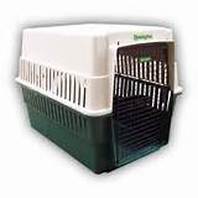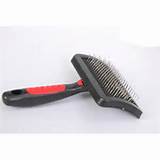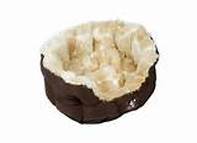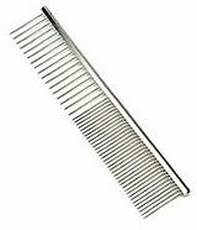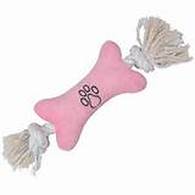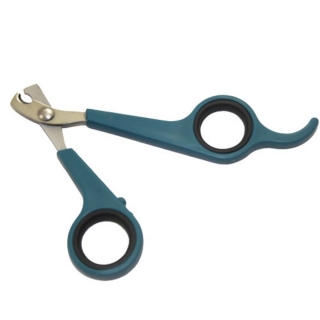Q: What do I need to bring when picking up my puppy?
A: Small kennel, towel, blanket, baby wipes and a plastic bag. Usually they just sleep, but your puppy may drool or get sick on their first car ride home. Having these extras along for the ride gives you a safe place to put the puppy, and makes you prepared for whatever that first ride brings!
Q: What should I have on hand when I get the puppy home?
A: Kennel, dog bed, pee pads or paper litter & tray, safe canine toys, puppy slicker, wire comb, cat nail clippers. Please buy quality puppy food.
***we will give you some of what we are feeding to blend over the first week - it should be a slow transition from our food to yours over 7 days. And absolutely no treats! Give their tummies time to develop and adjust before adding anything additional. I don't recommend adding treats until your puppy is at least 4 months of age.***
The first 24 hours is a very stressful time for your little puppy.
List of DO's:
List of DO NOT's:
Most importantly, Love your new baby. I have spent countless hours feeding, nurturing and caring for your new companion. I spend sleepless nights checking on them, weighing them, cuddling them, cleaning them and hand-feeding them at times. I meet all of their needs, and take them to the vet to ensure I am sending you home with a wonderful little furbaby. I am entrusting you to give my little love the family of a lifetime. If you love and enjoy your new-found baby, please tell others. If you don’t – if you have questions or concerns, please tell me. I am here to help you navigate the path with your new pup, and I will always be available to hear your concerns and to trouble-shoot with you. Please send pictures and updates!
Thank you so much for choosing one of my beautiful TerraMarie Poms.
List of DO's:
- Show the puppy his/her food and water area first thing! Be sure both bowls are clean and full at all times. Be sure to monitor that your puppy is eating and drinking for you, and if they are not, call me. Young puppies eat small amounts at a time, so should eat often.
- Watch for signs of hypoglycemia. If the puppy is slow to respond, listless, does not wake or rouse easily they could be hypoglycemic. Nutri Cal, Karo Syrup or Pancake Syrup immediately. If your puppy doesn’t return to normal, go to your vet immediately!
- Show the puppy where his/her “POTTY” area is. This is key to early housebreaking. Just as with our children, there are no hard and fast rules as to the best method of house-breaking. There are many factors - your schedule, the age of your puppy, where you would like them to potty, and how much time you can commit to training. The more you are home, the faster this process will be.
My recommendation is to kennel or crate train your puppy. Basically, they get floor/play time once they have pottied. Your new puppy will need to go every time they wake up, every time they play rambunctiously, 20-40 minutes after a meal, and several times in between as a small puppy while their bladder control is being developed. If he/she is not being supervised, they should not be loose. This will avoid many accidents. A small kennel can help in this department. Once they wake, take them out for a potty break, and if they've gone, you should be safe to have them loose for a short period of time afterwards. Follow this rule throughout the day to achieve best results. *The more room you give them unsupervised, the longer this process will take. - Be sure your home is puppy-proofed. Check for choking hazards and poisons. Watch your puppy carefully if they are loose to run around the house. A small body harness with a bell may be your best tool when they are first exploring!
- Watch your step! Your new puppy is very small, and they love feet at this stage.
- Have a bed/crate/exercise pen ready for your puppy to sleep in or to play in when you can’t watch them. This secure area is a “safe” place for them to be when you aren’t nearby. Other than bedtime, never leave them in a crate for more than 2 hours at a stretch.
- The first few days your puppy will be getting used to you and your family. Some puppies thrive as the center of attention, some can be a bit shy as they adjust to their new surroundings. Some may cry, some may not. Crying can be a normal precursor to accepting their new environment. It can be worse at night, or when confined for long periods of time. It usually only lasts about 3 days.
- Be sure to watch for loose stools during this time, as they can occur due to high stress.
- It is important to spend a great deal of time with your new puppy. Play with them, soothe them, and care for them. You are taking over as their new parents – what you do will help them to establish a new routine and feel safe and loved. The time and effort you put in now helps them to learn the right way to do things, and will help to meet your long term goals of owning the best possible companion.
List of DO NOT's:
- DO NOT EVER hit, spank, or strike your baby puppy. Under the best of circumstances doing so can start behavioral problems and make your puppy afraid of you. Under the worst of circumstances, you can seriously injure them as they are very small.
- Do not YELL at your puppy. Use a deep and firm voice when needed. Clapping your hands and saying “NO” is a great way to correct your puppy. Yelling only teaches them to mistrust you, feel insecure and ultimately be afraid of you.
- No treats for puppies under 4 months, period. No milk ever, only kibble whether dry or softened for the first months in their new home. Do NOT feed table scraps, ever. It is bad for their teeth. A hard kibble diet with nutritious snacks and dental treats are all they need at maturity.
- Never leave your puppy in a car alone. 10 minutes in a hot car can be fatal. And your puppy is adorable, assume others will take a puppy they think is unsupervised or in distress.
- Do not put your puppy down on the ground outside, in a store, at the vet, dog park, etc. until fully immunized.
- Be careful when taking your puppy in a purse or carrier. Be sure the weather is not too hot or too cold, and that the carrier is well-vented. Dogs can easily get heat stroke in a hot carrier/purse.
- No jumping on and off of things. Best rule of thumb is no more than 6” for the first 6 months of life. To protect their fragile joints, patella’s, etc, no jumping on and off of sofas, beds, decks, in and out of cars, ever.
Most importantly, Love your new baby. I have spent countless hours feeding, nurturing and caring for your new companion. I spend sleepless nights checking on them, weighing them, cuddling them, cleaning them and hand-feeding them at times. I meet all of their needs, and take them to the vet to ensure I am sending you home with a wonderful little furbaby. I am entrusting you to give my little love the family of a lifetime. If you love and enjoy your new-found baby, please tell others. If you don’t – if you have questions or concerns, please tell me. I am here to help you navigate the path with your new pup, and I will always be available to hear your concerns and to trouble-shoot with you. Please send pictures and updates!
Thank you so much for choosing one of my beautiful TerraMarie Poms.

